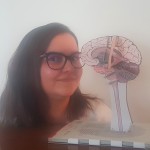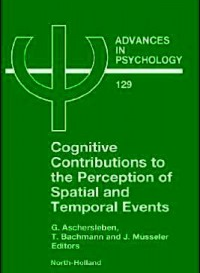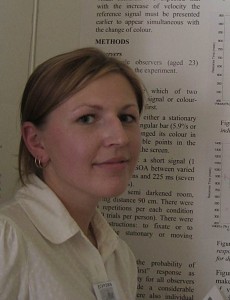Renate Rutiku
Renate Rutiku first stumbled upon the question of consciousness while studying psychology at the University of Potsdam in Germany. She was quickly captivated by the uniqueness of the problem and how it connects to many other brain functions such as perceptual processing and executive control. This fascination was deepened further at the Max Planck Institute for Brain Research where she conducted her Diploma thesis under the supervision of Prof. Lucia Melloni studying how prior knowledge influences conscious perception.
Renate carried out her doctoral studies at the University of Tartu (supervised by Professor Talis Bachmann). As part of our lab she studied the neural correlates of consciousness from a range of different angles, focusing mainly on improving the methodological aspects of consciousness research. After obtaining her doctoral degree in 2015 she joined the lab of Prof. Marcello Massimini in Milan for her first postdoctoral fellowship. There she studied auditory perception in patients suffering from disorders of consciousness and how brain-based measures can inform us about the level of an individual’s conscious state. During her stay in Milan she continued collaboration on the studies conducted in our lab.
In 2018 Renate rejoined us to continue work on the core topics of our lab. Currently, she is starting her second postdoc in Krakow at the lab of Prof. Michał Wierzchoń, but also staying in close contact with our team here in Estonia and supporting ongoing projects.
Renate Rutiku_CV
Talis Bachmann
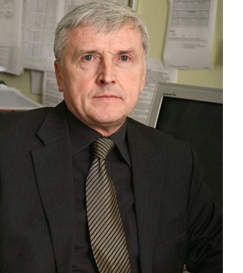
For career and research related information please see CV in ETIS and our publications list.
Talis is the principal researcher and head of the group associated in and around BachmannLab. He holds full time professorship in the Department of Penal Law of the School of Law, Faculty of Social Sciences, University of Tartu (Professor of Cognitive and Forensic Psychology) and has also adjunct professor’s duties in the Institute of Psychology of the same Faculty. He is Editor-in-Chief of Consciousness and Cognition (Elsevier).
Endel Põder
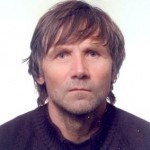
Endel belongs to the variety of researchers who are fascinated with conceptual and quantitative modeling of psychological perceptual effects. Graduate of the University of Tartu (see also his CV), he worked for some time in public opinion studies, but his keen interest in psychophysics of perception prevailed and Endel joined Talis Bachmann’s research group in 1990-ies. Endel Põder investigates attentional processes and mechanisms, with two central topics of his research in visual crowding and visual search. (For more detailed account of his research, see publications list in his CV.)
Endel has a sharp and critical mind in noticing shortcomings of experimental design and overlooked alternatives of interpretation. He is sceptical of the neuroscietific theories of visual and other cognitive processes unless a precise model consistent with behavioral results and firmly known neural-network characteristics is possible. Endel also tends to stick to the Occam’s razor strategies in his research and theorising. As simple and as clear as possible – this is his motif. If Talis writing often suffers from wordiness, then Endel’s writing sometimes suffers from too few words:-).
Endel’s more important research findings help to constrain possible interpretations of visual crowding. He has shown pop-out like effects in facilitating crowded target perception, paradoxical decrease of crowding with increased distracter density, dependence of the models sufficient to explain crowding on the number of distracters, size-based selection in visual search from RSVP, etc.
Endel Põder’s scientific visits have brought him also to the places with good modeling traditions of vision research – Greg Francis in Purdue and Johan Wagemans’ lab in Leuven.
Endel is also the best qualified computer programmer for experiments in our lab.
Endel Põder_CV
Personal webpage http://ut.ee/~endelp/
Iiris Tuvi (formerly Iiris Luiga)

Iiris is another graduate of the University of Tartu, Department of Psychology. Her doctoral thesis and subsequent work have been most of all dealing with visual attention and object substitution masking. (See her CV also for publications.) But some other topics can be noticed as well, such as TMS studies of visual perception (research still in progress).
Research conducted by Iiris Luiga has produced several interesting results (including as referred to in Scholarpedia). For example, it was shown that object substitution masking (OSM) can be overcome by attentional precueing, but strongly so only if a local pre-cue is used instead of the central pre-cue. Some effects of sensory contrast attributes of targets and masks in OSM were also found. In a recent study, it was shown that for OSM to take effect there is no need to use a local mask; it is sufficient to postpone the offset of a group of globally arranged distracter objects. On the other hand, there are no mutual congruency dependent facilitative or interfering effects between the visual shapes of local targets and global arrangement of masking distracters. By the way, for most of her experiments Iiris does computer programming herself.
From her spare time activities, one cannot escape noticing Iiris’ skills of flamenco-dancing and snowboarding.
Iiris Tuvi_CV
Carolina Murd
Carolina defended her PhD thesis “Mechanisms of processing visual motion information: Psychophysical, bioelectrical and transcranial magnetic stimulation investigations” in 2014, supervised by prof. Talis Bachmann and senior researcher Kairi Kreegipuu. Carolina has also been working as an assistant and researcher in our lab from 2007. Her research has evolved around visual motion perception, visual search, visual masking, TMS-induced scotomas, caffeine-induced changes in TMS-evoked ERPs, visual ERPs, etc. She has also supervised students doing research in the lab, both in terms of data analysis and tweaking computer programs for running the experiments.
Currently, she is a post-doc guest at University of Zurich, where she is conducting her two-year project on perceptual decision-making.
The full list of her publications can be found from the following link:
Carolina Murd_CV
Jaan Aru
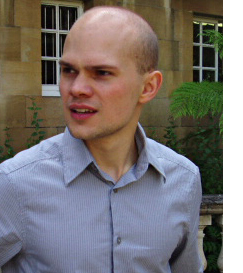
Jaan did his masters in Berlin Humboldt University and conducted his PhD-research in Max Planck Institute for Brain Research (under the supervision of Lucia Melloni and Wolf Singer). However, since 2007 Jaan has also been a part of our lab, doing research on several topics surrounding the key term “consciousness”: Jaan and Talis together published the first first published papers of the lab based on new advanced EEG/TMS equipment (Aru & Bachmann, 2009 in Brain Research and Neuroscience Letters). In 2009, Jaan and Talis also published an Estonian language book on attention and consciousness. In 2012 Jaan and Talis together with Lucia Melloni and Wolf Singer published a relatively well-noticed critique of the common way how consciousness is studied in Neuroscience and Biobehavioral Reviews. Jaan has also been involved in studying the state-dependent effects of TMS propagation and has been supervising younger students in our lab.

